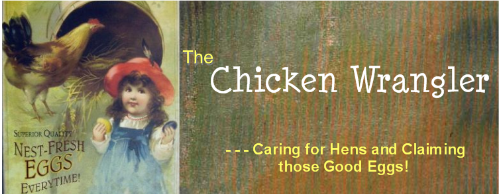A: Hens will peck at and eat their own eggs. They can develop a "taste" for the eggs, or sometimes if they are nutritionally needy, they will begin to look for something to fill that void in their diets. Once started, the bad habit can spread like wildfire with the rest of your hens! To nip it in the bud, collect eggs more frequently, if possible. If the eggs are being cracked as the next hen settles in for laying her egg in a favorite nest box, a Roo may find it laying on the coop floor and he will eat it. Once he discovers where the tasty treat comes from he may hunt and peck more of them on his own! Can't blame him - fresh eggs taste wonderful, and are so good FOR you!
It may be the nest boxes need more padding - straw or paper shreds, or perhaps wood shavings - whatever you are currently using may be able to be improved upon, or find a fluffier substitute. When the girls lay, the egg might make contact with something hard and crack - the next hen will spy it and eat it....Any precautions should be taken.
There are styles of separate next boxes that allow the egg to roll out the back after the hen lays it. That way any hen will have no access to that egg until the owner retrieves it later on. And, depending on how your chicken house is set up, I've seen where a "funnel" is added to the bottom of the nesting area, the egg rolls out of the hen and into the rubber funnel into a small padded chamber below. Folks are so incredibly clever in figuring out how to solve this problem, it never ceases to amaze me. There have also been stories of blowing out an egg and filling it with something distasteful to poultry....yes, they do have taste buds - not as many as humans have, however, and their taste buds are located near the back of the tongue.
 |
| One of my new PEEPS... |
But, as always, prevention is the key, and there are times that once the habit is established in a flock of hens, they may all have to be replaced if any of these suggestions do not work.
Have a great weekend!
the ChickenWrangler


















